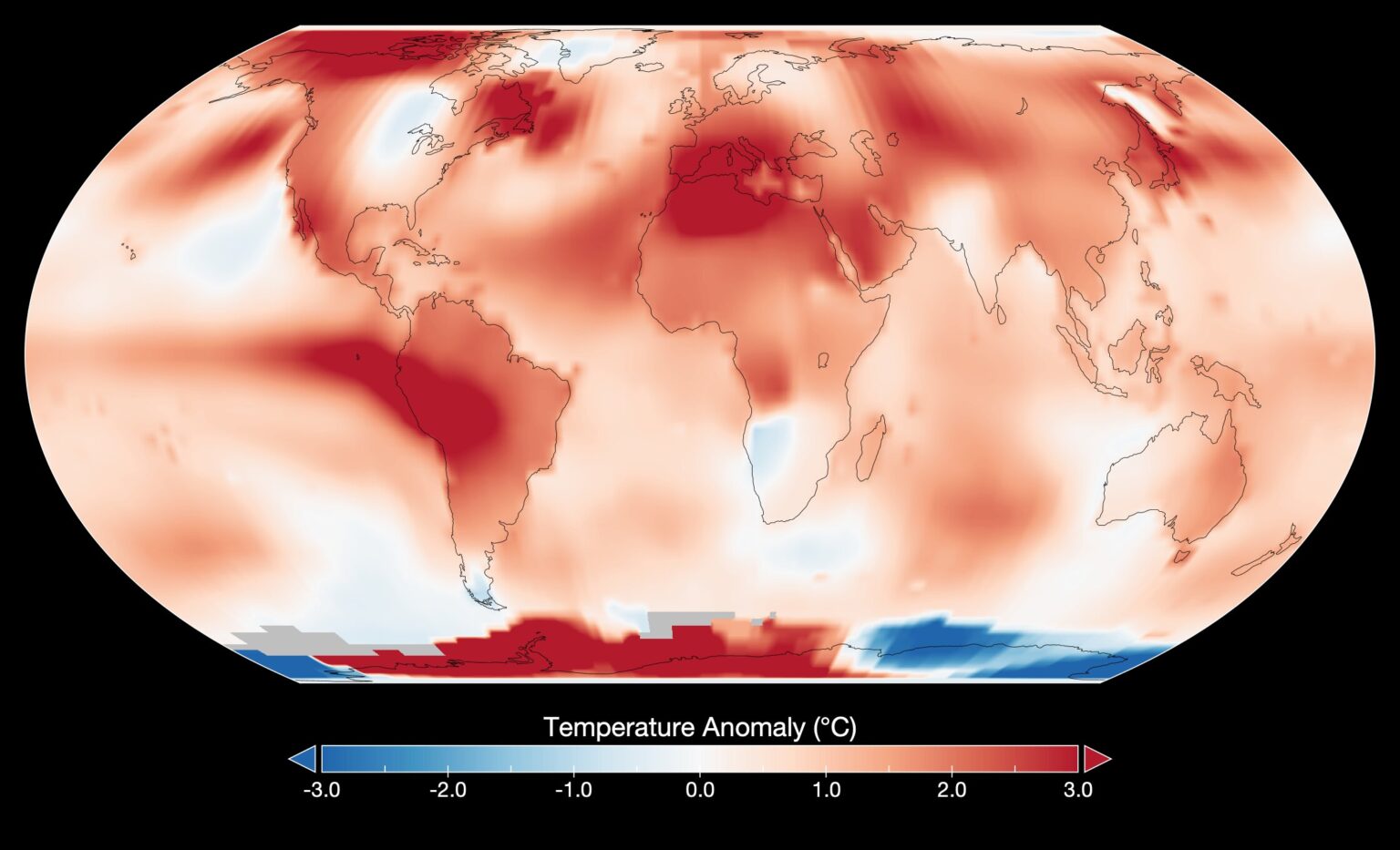NASA reported that the average temperature on Earth in July 2023 was higher than any July before it. This is true for both land and ocean. This means that last month was the hottest in the entire history of observations.

Hottest July
Scientists from NASA’s Goddard Institute for Space Research stated that July 2023 turned out to be the hottest in the history of observations on Earth. The American Space Agency monitors the temperature on our planet with the help of meteorological stations scattered all over the planet, so we are not talking about an anomaly recorded in one place.
According to the data obtained, the average temperature on Earth in July 2023 was 0.24 °C higher than in any other July since 1880. By the way, the last record that was exceeded this year was recorded only in 2021. If we compare the recorded temperatures between 1951 and 1980, they will be higher by 2.1 °C.
And since July is the hottest month of the year, if we start from the average temperature across the planet, this means that last month was the hottest in history at all. Horrible heat was observed in North and South America, Africa and Asia.
Climate change
The main question that scientists and ordinary people around the planet are asking is whether this result is a random fluctuation or is it really climate change. The fact that in South America and on the Antarctic Peninsula, the deviation from average temperatures is as much as 4 °C indicates in favor of some large-scale processes.
Moreover, according to NASA observations, all five of the hottest Julies since 1880 fall on the last five. And if this was observed only on land, then it could still be said about randomness.
But the increased temperature is also observed in the World Ocean and this is certainly evidence of long-term processes because the seas have a greater thermal inertia than the land, and they affect it but not vice versa.
The temperature change is especially noticeable in the tropical zone of the Pacific Ocean, where El Nino began to develop in May. It consists in the fact that warm waters rise from the depths of the ocean and start the heating process with positive feedback. As a result, the water temperature may rise by 5-9 °C relative to the norm for several months.
Scientists point out that El Nino has not yet reached its peak. It is expected only in February-April 2024. So next year may also become a record in terms of the average temperature on the planet.
According to phys.org
Follow us on Twitter to get the most interesting space news in time
https://twitter.com/ust_magazine
